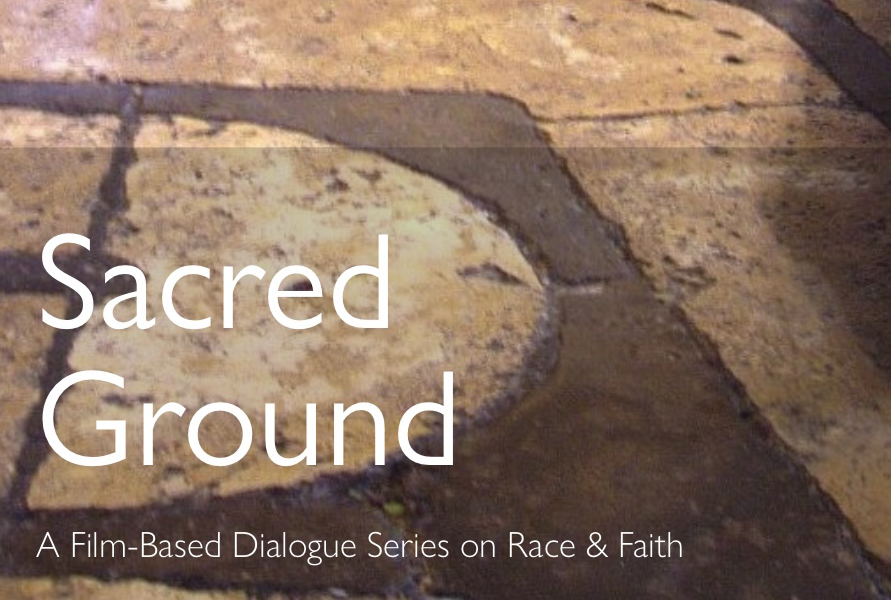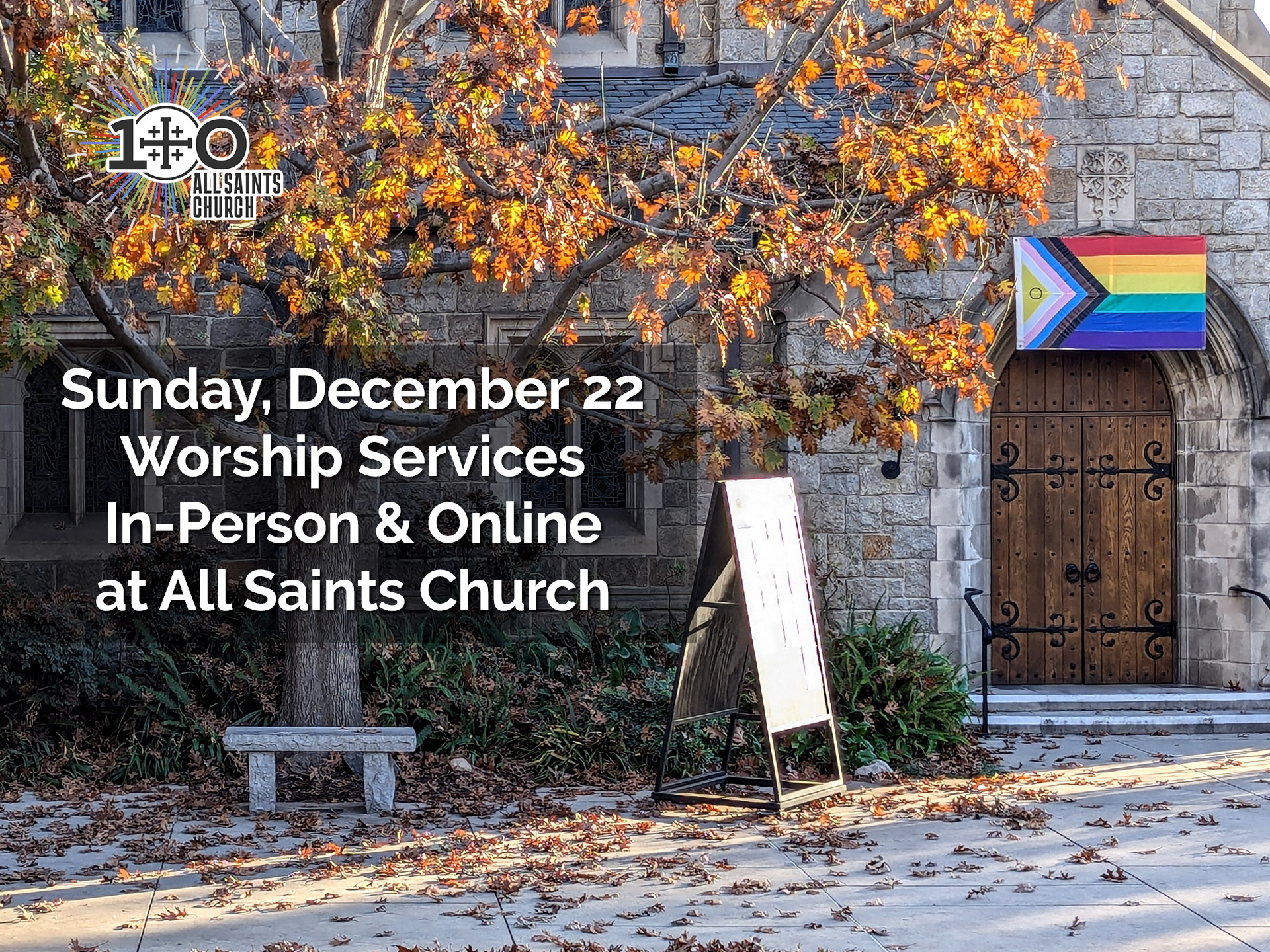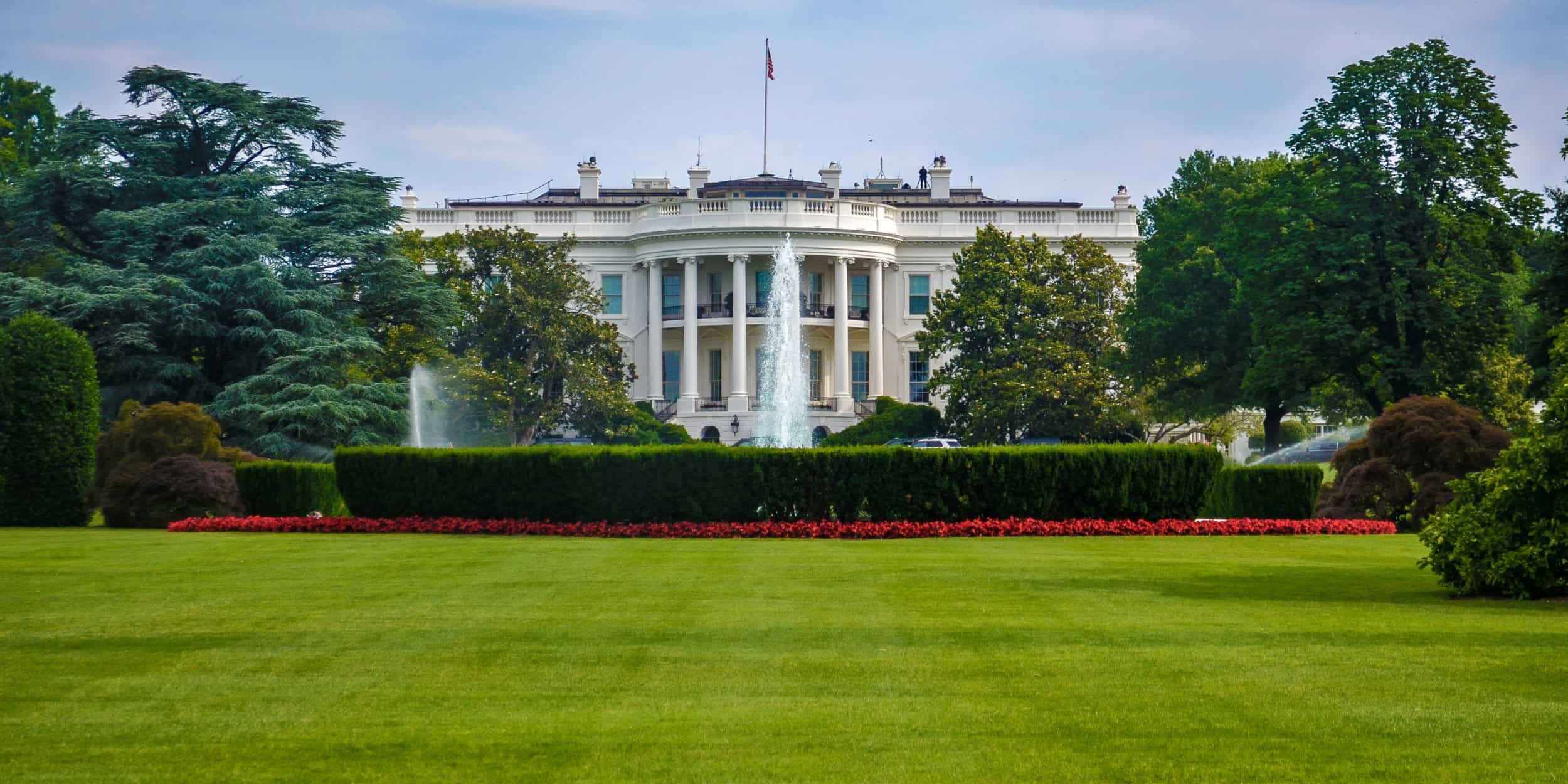“Deep, revolutionary love does not suppress anger. It amplifies the voices of the fearful, the sad and the angry so the truth of those emotions can awaken and transform the hearts of those who are causing the pain and those who stand idly by allowing the pain.”
Sermon by Mike Kinman at All Saints Church, Pasadena, on Sunday, June 30, 2019.
They said, “Rabbi, do you want us to call down fire from heaven and destroy them?” But Jesus turned and reprimanded them.
+
First, comes fear and sadness … then comes anger.
It happened a little more than a week ago as I heard the news that the president was directing ICE to conduct deportation raids in 10 cities, including Los Angeles. It was, simply put, an act of domestic terrorism designed to weaponize fear for political gain. And the emotions began welling up inside me.
First fear. Fear for the beautiful children of God in our All Saints and wider Pasadena community whose lives and families are now in grave danger. Fear that ICE will come for them and there will be nothing we can do.
Along with fear came sadness. Deep sadness and grief that we have come to this as a nation. Deep sadness that this is a president who, in the words of Anne Lamott, “shows no evidence of ever having been loved” and is rapidly leading us down an increasingly craven and loveless road to self-destruction.
Fear. Sadness. These feelings were deep and uncomfortable. They made me feel powerless. They tempted me to hopelessness and despair. And so, another emotion began to grow in my heart. One that took away the hopelessness and despair. One that made me feel powerful.
I got angry.
First, fear and sadness … then anger. I know them all so well. I know you do, too. They are old friends. And lately they have been coming out to visit again and again and again.
They came out when Christine Blasey Ford boldly told her truth about being sexually assaulted by Bret Kavanaugh and when countless courageous women have told their truth about being sexually assaulted by Donald Trump and I realized that these men would join the ranks of so many others in never facing any consequences whatsoever for their actions. First fear and sadness, then anger.
They come out when I hear yet one more person I love has cancer which may end their life far, far too soon. First fear and sadness, then anger.
They came out this week when Juan Mejia, Flor Quintanilla, Sally Howard and I talked on the phone with an amazing, strong single mother who doesn’t have the proper documentation to be in this country legally. She was terrified of what would happen to her child if ICE took her away forever. And at one point as she stopped talking and all we could hear through the speaker were her quiet sobs, those emotions came back inside me again. Fear and sadness. Fear and sadness. I hated those emotions. I felt powerless and tempted to despair.
And then came anger.
I thought of the person and people who were behind this, whose heartless actions had terrorized this courageous woman and driven her to her knees in tears. I thought of him, I thought of them and the words from this morning’s Gospel echoed in my head and I wanted to scream “God, call down fire from heaven and destroy them.”
Fear, sadness and anger. These are not bad things. They are important, natural, human emotions that need to be felt. Natural human responses to trauma, injustice and evil. To having our very personhood denied, degraded and endangered.
And so, I stand here with you this morning to say as I look at what is happening all around us, I am afraid, I am sad, and God knows I am angry.
And I am also tired. I’m tired of feeling this way. Tired of it seeming like every day brings a new injustice. And I know that as tired as I am there are so many others of us who are even more tired because you have been living with so many deeper traumas and injustices for much, much longer than me.
And so, I am right with James and John when they ask Jesus, “Just once … just this once … can we please call down fire from heaven and destroy them?” It would just feel. So. Good.
And Jesus has an answer. An answer for James and for John. An answer for you and for me. And it is not a simple answer.
Jesus does say no. Raining down fire is not the answer. But it is not a simple no. And it is how he says it and what he says after that are what I want to talk about this morning.
Luke’s Gospel tells us that Jesus “reprimands” the disciples. That word is so important. The Greek epitimao is not a gentle response. It is a sharp, and yes, even an angry response. Yes, Jesus is saying that raining down fire is not the answer. And in how he says it, he is meeting and embracing James and John in their anger.
Jesus does not tell James and John their anger is wrong or even misplaced. He meets them there, shares their rage, affirms it, anoints it even as he forbids them to hatred and violence against people because of it.
I cannot stress enough how important this is. You see, the church historically has had two attitudes toward anger, and both have been destructive.
One is espousing the anger that calls down fire from heaven. It is the church of the Crusades. The church of self-righteousness justifying violence against people. The church of a God who hates and punishes and whose anger rains fire down on the very people and creation God supposedly loves. Empire loves this church because it is so easy to use anger to divide and control and enslave the people for its own ends.
And yet the church’s other historic attitude toward anger has, in some ways, been equally as destructive. It is the attitude that anger is incompatible with love. That we should suppress and be ashamed of anger. Empire loves this as well for it tells people suffering from injustice and oppression that Jesus says they have to be nice, docile and harmless in their forgiving of their oppressors. Don’t get mad. Just love. Just forgive. No matter what I do to you, you can’t get angry at me because anger is “unchristian.”
And yet Jesus in this morning’s Gospel calls both of these attitudes out as lies. Jesus absolutely denies the call to hatred and violence against people and .. Jesus is angry.
Jesus is angry because Jesus is human, and anger is not a human failing but a natural human response to trauma and injustice and evil.
Anger can be scary, especially for those of us who have had anger violently turned against us. There can be an unpredictability and power to anger that can be truly terrifying and that can cause us to fear and avoid it at nearly all cost.
And yet, despite this, anger is gift and blessing. It is one of our ways of telling ourselves that something is deeply, deeply wrong and needs to change. Anger is how we know that enough has become too much.
Stonewall happened because of anger.
Selma happened because of anger.
Apartheid fell because of anger.
Anger is a necessary part of love, because we should be angry when those whom we love are denied, injured or oppressed. Because love heals, and anger is one our primary ways of telling ourselves that there is some deep healing needed and somebody had better start getting to work on it.
Anger is a feeling that needs to be felt. And there will never be justice and healing until it is. It is good and right and natural to be angry – and raining down fire is not the answer.
Truthfully, raining down fire is the easiest way out. We know how to do it. We do it all the time. Social media makes it really easy. It’s not only the terrible tendency of the oppressed to become the oppressor, it is the demonizing of individuals instead of the dismantling of systems. It is accountability for evil actions through retribution instead of restoration. It is the proliferation of hate in the name of defending the cause of love. And it is a seductive choice because it makes us feel powerful and righteous. It is a seductive choice because it. Feels. Good.
We are called not to rain down fire on each other because we know, as Dr. King says, “The ultimate weakness of violence is that it is a descending spiral begetting the very thing it seeks to destroy, instead of diminishing evil, it multiplies it. Through violence you may murder the liar, but you cannot murder the lie, nor establish the truth. Through violence you may murder the hater, but you do not murder hate. In fact, violence merely increases hate.”
“Returning violence for violence multiplies violence, adding deeper darkness to a night already devoid of stars.”
So, if not fire, then what? What do we do with the fear, the sadness and the anger?
We make space for it. We feel it deeply. We hold each other as we share it. Then we channel the fear, the sadness and the anger – into deep, revolutionary love.
Deep, revolutionary love does not suppress anger. It amplifies the voices of the fearful, the sad and the angry so the truth of those emotions can awaken and transform the hearts of those who are causing the pain and those who stand idly by allowing the pain.
Deep, revolutionary love is looking deep into the eyes of those with whom we disagree and even who are deeply wounding God’s children and instead of asking disparagingly “what is wrong with you?” asking compassionately “what happened to you?”
Deep, revolutionary love is not violent, but neither is it peaceful. It is disruptive in its demand that truth be told, heard, and done.
Deep revolutionary love is not the weaponization of the fundamentalisms of the right, the fundamentalisms of the left or the comfortable capitulations of the center.
Deep revolutionary love is demanding nothing short of the truth that equity is a prerequisite for reconciliation and that restoration not retribution is the only justice that will ever lead to peace.
Deep revolutionary love is resisting the temptation to demonize the oppressor every bit as much as we resist the oppression itself and reaches for a communion of mutual healing across our deepest divides.
Finally, deep revolutionary love is willing to pay the price not just of solidarity with the oppressed but of being rejected even by those whom we have counted friends and allies in the struggle who choose the easier road of raining fire rather than the harder and ultimately more rewarding road of love.
That is what the stories of the three travelers who wished to follow Jesus tell us. That if we are to follow the path of deep, revolutionary love we can expect not only to be in solidarity with the homeless and the destitute, we can expect even those closest to us to consider us betrayers of the causes that together we hold most dear because we insist on seeing those who oppress as hearts to be converted not enemies to be defeated.
Dietrich Bonhoeffer, whose conviction that the evil of the Third Reich must be resisted even to the point of a violence he still believed was contrary to the teachings of Christ, wrote that when the state is unjust, there are three forms the church’s response of deep, revolutionary love can and must take.
First, the church can and must hold a mirror up to the state and force it to examine its actions in light of its values and responsibilities.
Second, the church can and must aid the victims of state action, bringing compassionate and healing care to those who are being targeted and wounded
Finally, Bonhoeffer wrote what is usually translated as the Church’s call “not just to bandage the victims (crushed) under the wheel (of the state) but to jam a spoke into the wheel itself,” disrupting and breaking the very systems of oppression and injustice.
Those final words have been widely quoted both because they are wise and because, much like the anger that fear and sadness raises in our hearts, the idea of us being the champions who ram the spoke into the wheels of injustice makes us feel righteous and powerful.
…And there is an alternate translation of Bonhoeffer’s German, one that notes that that most popular translation actually doesn’t make sense. Spokes are not what destroy a wheel but what hold it together. To put a spoke in a wheel would actually help it function better. This alternate translation notes the object of the verb is the spokes, not the wheel … that what Bonhoeffer is calling the church to do is to throw itself into the spokes of the wheel to stop the state’s injustice.
I can neither read German nor do I have special knowledge of what Bonhoeffer was thinking, and I will say this translation is much truer not only to Bonhoeffer but to the model of Christ. And it holds in its hands our challenge as All Saints Church for this present moment.
There are beautiful children of God living in cages and there are beloved images of God trembling in fear for their lives. And we are sad. And we are afraid. And we are angry. And that anger is moving us to action. That anger is calling us to the actions of deep, revolutionary love.
As All Saints Church, we can and have held the mirror up to the state, condemned these acts and called the state to examine its actions in light of its values and responsibilities. We can be proud of that. That is being a church of courageous justice.
In declaring ourselves a sanctuary church and in setting up structures for meeting the physical, spiritual, legal and other needs of those among us who fear for their lives, we are bringing compassionate and healing care to those who are being targeted and wounded. We can be proud of that. That is being a church of courageous justice.
Both of these things are wonderful and important and yet alone they are not sufficient to stop the wheel from crushing God’s beloved.
The systems that have created and perpetuate these atrocities are supported by the economic, social, political, religious, media, educational and military structures that undergird our very society. The injustice is hardwired into the same systems that sustain our lives. Petitions, vigils, and all the other actions of protest that fall short of the transformative power of real sacrifice will never by themselves stop the wheels of injustice from continuing to crush God’s beloved.
If we fully are to be a church of courageous justice, our greatest joy will be to let our fear, our sadness and our anger lead us to Bonhoeffer’s most difficult and rewarding challenge of deep, revolutionary love:
How are we as All Saints Church called out of deep, revolutionary love for ALL God’s children to throw ourselves on the spokes of the wheel of injustice.
How are we called to the kind of revolutionary love that does not demonize the other but transforms and heals us all?
How are we as All Saints Church called to the kind of action that is revolutionary precisely because it shows that we are willing to risk everything for the sake of those who stand to lose everything? To join Jesus and those with whom we stand in solidarity in having no safe place to rest our head?
I do not know how we are to throw ourselves on the spokes of this wheel, only that that is what we must do. Because people are dying. And our safe compassion, though wonderful and truly healing is not enough to stop it.
I do not know how we are to throw ourselves on the spokes of this wheel, only that that is what we must do. Because we are all so deeply tired of being in this place of fear, this place of sadness, this place of anger without end.
I do not know how we are to throw ourselves on the spokes of this wheel, only that that is what we must do. And that together with others who share this vision of the power of deep, revolutionary love, we have the capacity to discover it, the courage to accomplish it, and the power to make the world anew. Amen.



